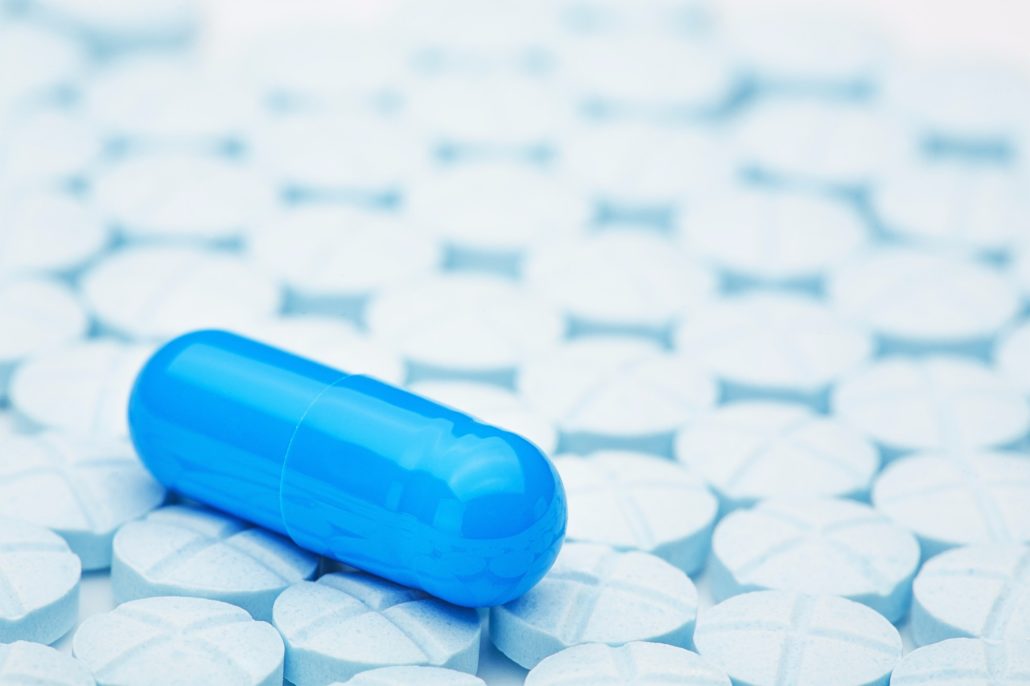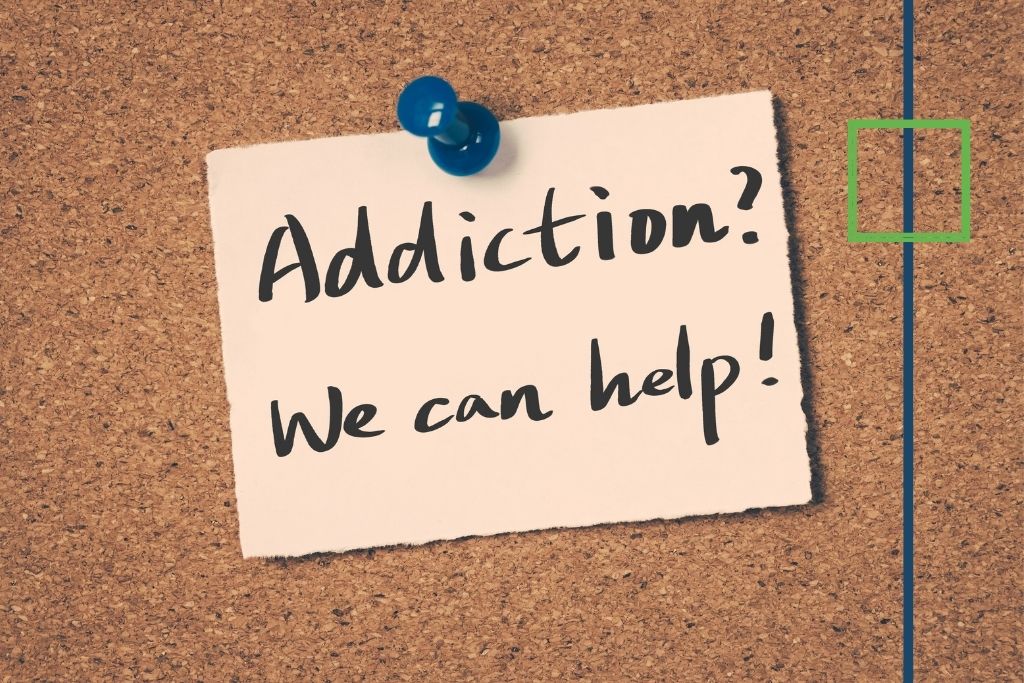Commonly Abused Cough Medicines
Cough medicine is commonly available in local pharmacies as an over-the-counter (OTC) flu remedy. It helps us to relieve discomfort when suffering from flu, like runny nose and cough. Sadly, it is also a popular drug choice by substance abusers. It can be regarded as cough medicine abuse when cough syrup is used not for flu remedy or using more than what is prescribed by the doctor.
Some over-the-counter (OTC) and prescription cough medicines contain psychoactive ingredients (mind-altering) at higher-than-recommended dosages and are often abused for this purpose. In addition, cough medicines may also contain other drugs, such as antihistamines and expectorants, which are dangerous at high doses that add to the dangers of abuse.
According to the National Center for Biotechnology Information ( NCBI) [1], over the past 20 years or so, the drug misuse scenario has seen the emergence of both prescription-only and over-the-counter (OTC) medications being reported as consumed for recreational purposes. OTC drugs such as antihistamines, cold and cough medicines, and decongestants are reportedly the most popular in being diverted and misused.

Get Your Life Back
Find Hope & Recovery. Get Safe Comfortable Detox, Addiction Rehab & Mental Health Dual Diagnosis High-Quality Care at the We Level Up Treatment Centers Network.
Hotline (877) 378-4154Two commonly abused cough and cold medicines are:
Dextromethorphan (DXM)
It is a cough expectorant and suppressant found in many OTC cough medicines. It may create euphoria and dissociative effects or even hallucinations when taken in quantities greater than the recommended therapeutic dose. DXM was approved by the FDA in 1958. You can find it in at least 70 common over-the-counter (OTC) cough and cold medicines [2]. It has no serious side effects when used in small doses. When taken in larger amounts, it can distort awareness and alter time perception. It can also cause hallucinations.
Promethazine-Codeine Cough Medicine
It is a medication that contains codeine, an opioid that acts as a cough suppressant and can also create euphoria and relaxation when used at a higher-than-prescribed dose. Promethazine-Codeine cough medicines also contain promethazine HCl, an antihistamine that additionally functions as a sedative. Although only available by prescription, promethazine-codeine cough syrup is sometimes turned for abuse.

Get Help. Get Better. Get Your Life Back.
Searching for Accredited Drug & Alcohol Rehab Centers Near You? Or Mental Health Support?
Even if you have failed previously, relapsed, or are in a difficult crisis, we stand ready to support you. Our trusted behavioral health specialists will not give up on you. Call us when you feel ready or want someone to speak to about therapy alternatives to change your life. Even if we cannot assist you, we will lead you wherever you can get support. There is no obligation. Call our hotline today.
FREE Addiction Hotline – Call 24/7How Are Cough Medicines Abused?
Cough medicines are typically consumed orally in capsule, tablet, or syrup form. They may be combined with soda for flavor and are frequently abused in combination with other drugs, such as marijuana or alcohol. Because cough medicines are easily purchased in pharmacies without a prescription, cough syrups, pills, and gel capsules containing Dextromethorphan (DXM)—particularly “extra strength” forms—are frequently abused by people (who refer to the practice as “skittling” or “robo-tripping”). To avoid nausea, a side effect produced by high doses of the expectorant guaifenesin generally found in DXM containing syrups, people may instead abuse Coricidin HBP Cough & Cold capsules (street name C-C-C or triple-C), which contain DXM but lack guaifenesin.
Drinking promethazine-codeine cough medicine mixed with soda (a combination called syrup, sizzurp, purple drank, barre, or lean) was referenced often in some popular music beginning in the late ’90s and has become more popular among youth in several areas of the country. A version of “purple drank” is promethazine-codeine cough syrup combined with alcohol. Users may also flavor the mixture with the addition of hard candies. Codeine, which is present in promethazine-codeine cough medicines, is just like other morphine-like substances that suppress cough. To maintain the desired effects or avoid the unpleasant withdrawal symptoms, one has to keep using more and more cough syrup, even against his own will.
Comfortable Facilities & Amenities
High-Quality Addiction & Mental Health Rehabilitation Treatment
Rehab Centers TourRenowned Addiction Centers. Serene Private Facilities. Inpatient rehab programs vary.
Addiction Helpline (877) 378-4154Proven recovery success experience, backed by a Team w/ History of:
15+
Years of Unified Experience
100s
5-Star Reviews Across Our Centers
10K
Recovery Success Stories Across Our Network
- Low Patient to Therapist Ratio
- Onsite Medical Detox Center
- Comprehensive Dual-Diagnosis Treatment
- Complimentary Family & Alumni Programs
- Coaching, Recovery & Personal Development Events
What Does Cough Syrup Abuse Do to Our Health?
Heavy consumption of cough syrup can lead to irregular heartbeat, restlessness, insomnia, irritability. In certain individuals who are prone to exhibit mental disorders, cough syrup misuse can produce an acute mental disorder with features similar to schizophrenia, such as hearing a voice, confused speech, illogical thought, and disorganized behavior. In certain incidents, the mental abnormality would not stop by quitting cough syrup misuse alone, and these individuals have to be maintained with psychiatric medication for life.
Once a dependence state is established, one would lose control over cough syrup abuse and has to keep using it, no matter he is willing or not. Otherwise, he has to endure weeks of distressing withdrawal symptoms including restlessness, insomnia, and physical discomfort.
Dangers of Cough Medicine (DXM) Abuse
- DXM acts on the same brain cell receptors as hallucinogenic drugs like ketamine or PCP [3]. Cough syrup that contains Dextromethorphan or DMX causes an altered mental state. People who are high on DXM may have an altered perception of reality, poor judgment, hallucinations, dizziness, visual changes, lack of coordination, and visual changes. In this situation, riding a bike, driving, or just crossing the street can be dangerous.
- Dextromethorphan or DMX causes side effects such as nausea, vomiting, panic attacks, seizures, pounding heartbeat, high blood pressure, slurred speech, and even death if abused with alcohol or other drugs.
- DMX is also available in pure powder form. It is hard to take enough cough and cold medicine to get high without vomiting. People are getting around this by taking pure DXM in powder form. Pure DXM is available as a street drug or on the Internet. There are also websites that tell people how to extract DXM from over-the-counter (OTC) medicines.
- DMX may lead to psychosis. Long-term abuse of cough syrup containing DXM may cause a mental illness called chemical psychosis. In chemical psychosis, a person abusing this drug loses contact with reality and may need hospitalization and medical treatment.
- DMX combined with other drugs intensifies its effects. People often combine DXM with other drugs, including alcohol, which raises the dangers. What’s more, OTC cold and cough products often contain other drugs, such as decongestants, antihistamines, and acetaminophen. These drugs can all be dangerous in very large doses. Dangers include stroke, heart attack, and liver damage.
Side effects from DXM Abuse
- Confusion
- Nausea and vomiting
- Stomach pain
- Dizziness
- Double or blurred vision
- Slurred speech
- Impaired physical coordination
- Rapid heartbeat
- Drowsiness
- Numbness of fingers and toes
- Disorientation
Dangers of Cough Medicine (Promethazine-Codeine) Abuse
There are generally two ways in which the use of cough syrup containing codeine can lead to addiction: by using cough syrup recreationally and by using cough syrup for longer and in greater quantities than advised. As with all opioids, codeine is habit-forming. Its use over time can lead to dependence and addiction.
Addiction is, technically, a disease of the brain’s reward system in which an individual engaging in a certain behavior becomes compelled to repeat that behavior, regardless of the awareness of any negative outcomes of doing so. In the case of cough syrup abuse, that behavior is the misuse of cough syrup and the experience of its effects.
Dependence is a physiological phenomenon in which the system of someone consuming a specific substance over time becomes used to certain levels of that substance and comes to require it in order to function normally.
In the case of codeine-based cough syrup, the brain and central nervous system (CNS) of a dependent person need the presence of codeine in order to perform their usual functions, and the absence of this drug will trigger abnormal functioning in the form of numerous potentially dangerous and distressing withdrawal symptoms.
Someone consuming codeine-based cough medicine to treat a cough, who disregards and ignores instructions concerning dosages and the period of time they should take the syrup, risk developing dependence on codeine after a while because of the constant presence of the substance in their system.

Anyone using codeine-based cough syrup recreationally for the euphoric effects created by the codeine is likely to consume much greater quantities of the syrup than recommended for normal use and may mix it with alcoholic drinks to increase those effects. Such consumption constitutes abuse, and if this abuse is repeated regularly over a period of time, dependence is likely to result.
Street Names for Codeine in Cough Syrup
- Cody
- Captain Cody
- Schoolboy
- Lean
- Sizzle
- Drank
- Purple drank
- Doors and fours
- Loads
- Pancakes and syrup
- Coties
- T-threes
World-class, Accredited, 5-Star Reviewed, Effective Addiction & Mental Health Programs. Complete Behavioral Health Inpatient Rehab, Detox plus Co-occuring Disorders Therapy.
CALL (877) 378-4154End the Addiction Pain. End the Emotional Rollercoaster. Get Your Life Back. Start Drug, Alcohol & Dual Diagnosis Mental Health Treatment Now. Get Free No-obligation Guidance by Substance Abuse Specialists Who Understand Addiction & Mental Health Recovery & Know How to Help.
Cough Medicine Abuse & Addiction Signs & Symptoms
Mood Symptoms
- Euphoria
- Depression
- Calm
- Anxiety
- Mood swings
Psychological Symptoms
- Hallucinations
- Delusions
- Memory loss
- Lack of emotions
Behavioural Symptoms
- Drowsiness
- Increase in the amount of time sleeping
- Decreased appetite
- Apathy
- Increased hospital visits
- No longer caring for loved ones
- “Doctor shopping” (visiting several doctors to obtain more codeine prescriptions)
- Prescription forgery
- Stealing prescriptions or opiates from friends and family
- Healthcare fraud
- Lying to cover-up amount used
Physical Symptoms
- Constipation
- Blue tinge to lips and fingernails
- Muscle twitches
- Dizziness
- Fainting
- Nausea and vomiting
- Dry mouth
- Itching
- Rashes
- Urinary retention
- Hypotension
- Seizure
- Respiratory depression
- Decreased libido
- Coma
Effects Cough Syrup Withdrawal
Cough syrup withdrawal generally lasts between one and two weeks, with acute withdrawal peaking after two or three days and lasting up to a week. In some situations, the affected person will go on to develop post-acute withdrawal syndrome, with symptoms lasting months or even years. Treatment from a specialist is usually required in such cases.
Some of the most common symptoms of cough medicine withdrawal include:
- Cravings for the drug
- Runny nose
- intense sweating
- Chills
- Goosebumps
- Stomach cramps
- Nausea and vomiting
- Spasms of the muscles
- Agitation and irritability
- Psychosis
- Suicidal thoughts
- Homicidal thoughts
- Racing thoughts
- Hallucinations
Is Cough Medicine Addiction Treatment Necessary?

Because of the side effects of DXM, and codeine-based cough syrup withdrawal, some people give up and go back to using it. Moreover, withdrawal symptoms from cough syrup addiction can last up to 30 days. For these reasons, entering a prescription drug addiction treatment center can help you achieve and maintain recovery.
Treatment for cough syrup abuse and addiction often begins with detox. The safest and most effective way to detox is in an inpatient prescription drug addiction treatment center. Inpatient facilities like We Level Up NJ will help you through the mental and physical struggles of addiction to prescription drugs like cough medicine.
Experience Transformative Recovery at the We Level Up Treatment Center.
See our authentic success stories. Get inspired. Get the help you deserve.



Start a New Life
Begin with a free call to an addiction & behavioral health treatment advisor. Learn more about our dual-diagnosis programs. The We Level Up treatment center network delivers various recovery programs at each treatment facility. Call to learn more.
- Personalized Care
- Caring Accountable Staff
- Comfortable Amenities
- Licensed & Accredited
- Renowned w/ 5-Star Reviews